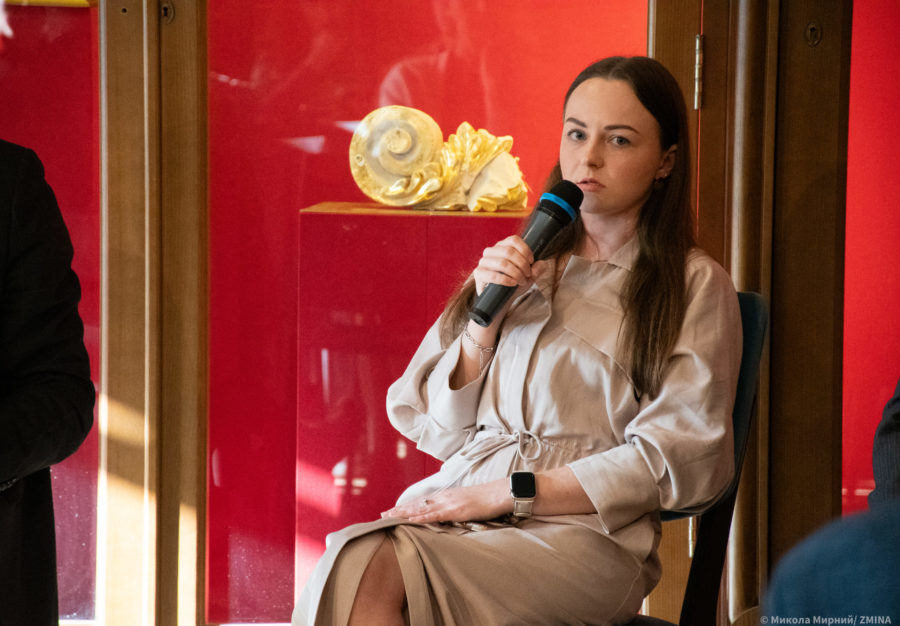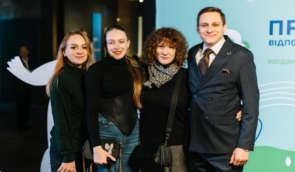Human rights activists record 162 cases of pressure on journalists in Crimea in the past two years
The Human Rights Center ZMINA recorded 162 cases of pressure on journalists in the temporarily occupied Crimea throughout 2022–2023, reported Victoria Nesterenko, ZMINA’s project manager, at the opening of the photo exhibition “Behind the Lens: Culture Under Attack” dedicated to the World Press Freedom Day.
 Victoria Nesterenko. Photo by ZMINA
Victoria Nesterenko. Photo by ZMINAShe notes that the statistics include cases of prosecution, abduction of journalists, administrative proceedings, searches, and online death threats.
The human rights activist stated that there is no free journalism or freedom of speech left in the temporarily occupied Crimea.
“In the first two weeks of Russia’s aggression on the peninsula, the occupation authorities eliminated independent journalism. The ‘little green men’ were coming to media offices looking for journalists to coerce them into working for Russia and producing Russian propaganda for the authorities,” recalled Victoria Nesterenko.
In this climate, public initiatives and movements such as “Crimean Solidarity” developed. There are also active citizen journalists in Crimea who are not reporters by profession. Most of them are Crimean Tatars, relatives of the Kremlin’s prisoners, who attend court hearings and report on what is happening there. They work anonymously, posting their content under pen names to protect themselves from persecution.
Those journalists who work openly, like Lutfiye Zudieva, are face persecution every now and then.
“Russian security forces have repeatedly come to search her home, trying to dig up something there. They constantly seize people’s mobile phones and video recorders, hoping to find something incriminating to maybe open a criminal case against her in the future and put her in prison at last, preventing her from speaking the truth,” explained Victoria Nesterenko.
Moreover, 16 journalists have been unlawfully detained by Russia and are now in prisons in the temporarily occupied Crimea and in Russia; those are recognized as political prisoners. They are kept in terrible living conditions, severely mistreated and moved to penal isolation centers or to solitary confinement.
The ZMINA Human Rights Center calls on the international community to advocate for the release of these journalists.
Earlier, Kateryna Yesypenko, the wife of Vladyslav Yesypenko, a freelancer journalist for Krym.Realii convicted in Russia, said that with the full-scale war going on, human rights activists have been struggling to draw the West’s attention to the repression in occupied Crimea.
Source: Institute of Mass Information
If you have found a spelling error, please, notify us by selecting that text and pressing Ctrl+Enter.















